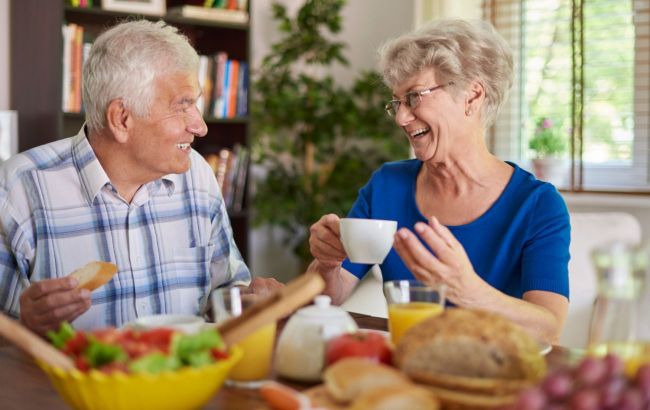In what order to eat foods to lower blood sugar - Nutritionist's advice
 Illustrative photo (Freepik)
Illustrative photo (Freepik)
Maintaining blood sugar levels is crucial, as normal indicators reduce inflammatory processes in the body and contribute to a healthy body weight. Conversely, sudden spikes in sugar or elevated levels increase the risks of diabetes and liver diseases.
Nutritionist Anastasiia Holoborodko explaines the optimal sequence of consuming various foods in order to regulate blood sugar levels.
The correct order of eating, according to the nutritionist:
1. Vegetables and greens
2. Protein and fats
3. Starches (white rice, pasta, bread, cereals) and sugars (desserts, including fruits if the gastrointestinal tract is healthy)
"Maintaining controlled and moderate glucose and insulin levels is the key to controlling the desire for snacks a few hours after meals, reducing hunger before the next meal, and decreasing inflammatory processes (including acne, rashes, dermatitis). It also leads to more stable energy levels throughout the day and control over a healthy body weight," Holoborodko explains.
The nutritionist also advises following these rules:
- Salty breakfasts are better than sweet ones.
- Eating sweets on an empty stomach provides no benefits.
- A post-meal stroll balances sugar levels.
- Salads or plain vegetables before the main meal help balance sugar.
- Whole fresh fruits are always better than baked or dried ones and, of course, superior to juices and smoothies, as they lack fiber. Adding some nuts to fruits is also very beneficial.
- Avoid drinks with syrups.
"Tea with honey is a dessert after a meal; don't consume it on an empty stomach. If you drink coffee with milk, opt for full-fat, whole, or with cream. Grain milk — oat or rice — is refined, causing high blood sugar levels. Choose nut milk varieties: almond, hazelnut, sesame, or simply whole milk," added the nutritionist.
This material is for informational purposes only and should not be used for medical diagnosis or self-treatment. Our goal is to provide readers with accurate information about symptoms, causes, and methods of detecting diseases. RBС-Ukraine is not responsible for any diagnoses that readers may make based on materials from the resource. We do not recommend self-treatment and advise consulting a doctor in case of any health concerns.

